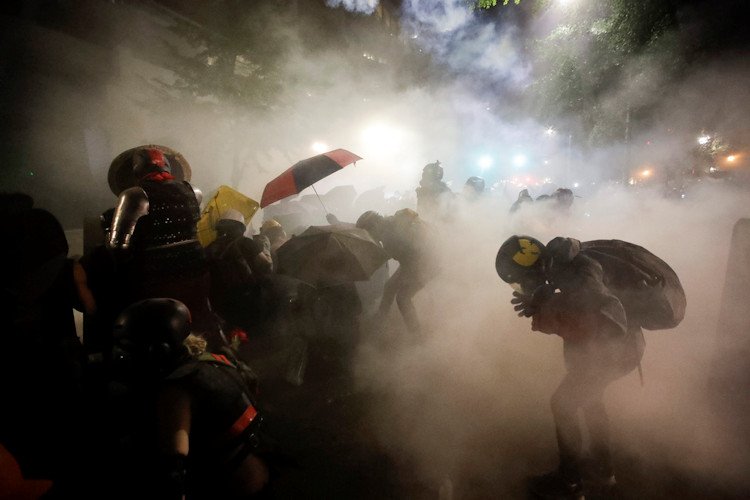New lawsuit against the US by protesters alleges negligence, battery in 2020 clashes in Oregon

PORTLAND, Ore. (AP) — Protesters who were injured by federal law enforcement officers in Portland more than three years ago have filed a new lawsuit alleging negligence and battery.
In July 2020, “the federal government unleashed unprecedented and sustained violence and intimidation on the people of Portland,” the lawsuit states. Protesters after that filed lawsuits against the Trump administration, federal law enforcement agencies and individual officers, Oregon Public Broadcasting reported. Many of the lawsuits relied on a type of claim that the U.S. Supreme Court has since gutted.
Tuesday’s lawsuit raises similar issues and involves the same injured protesters but was filed under a different federal legal theory, said David Sugerman, one of the attorneys involved.
Thousands of protesters in Portland took to the streets in 2020 following the death of George Floyd in Minneapolis, part of a wave of protests nationally. The protesters in Portland at times clashed with police, and militarized federal agents were deployed to the city to quell racial justice protests as they wore on.
A 2021 report by the U.S. Department of Homeland Security’s Office of Inspector General found agents lacked proper training or equipment to deal with riots and that there was no plan for operating without the help of local police, who were eventually ordered to stand down by the city. Agents also reported injuries.
Tuesday’s lawsuit against the federal government is brought by three named protesters on behalf of “at least 162 people,” the lawsuit states.
One of the protesters, Nathaniel West, told Oregon Public Broadcasting he protested peacefully for more than 40 nights and was exposed to tear gas and shot at with pepper balls for doing so.
“It’s about the next set of activists, the next set of protesters that come along,” he said of the lawsuit. “The First Amendment right is something that we have to constantly work to preserve. … We’re really thinking about what it means to protest in America.”